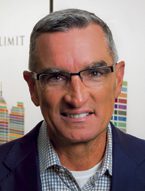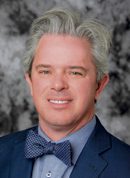Leadership
THREE PILLARS OF GROWTH
INSURICA executives share lessons in leadership
By Elisabeth Boone, CPCU
How would you react if a potential acquirer told you that you could retain up to a 30% interest in your agency post acquisition?
For the 29 agencies in the southwestern U.S. that have become part of INSURICA since 1995 when INSURICA acquired Agar Ford Jarmon & Muldrow in Norman, Oklahoma, that was a compelling proposition—as was the opportunity to become part of a rapidly growing franchise that hopes to expand its footprint beyond its current seven-state territory and possibly achieve a national presence.
Recently Rough Notes had the opportunity to speak with two INSURICA executives about its acquisition strategy, commitment to creating a healthy workplace culture, and ambitions for growth—and also about their perspectives on good leadership.
Mike Ross is president and chief executive officer of INSURICA, whose headquarters are in Oklahoma City. This has been home base for the agency since its inception in 1959.
Mark Bridges is Texas president of INSURICA. His former agency, DFB Insurance Group (Duncan, Fraser & Bridges), joined INSURICA in 2016 and has offices in Amarillo, Pampa, and Arlington, Texas.
INSURICA’s current footprint covers seven Southwestern states: Arkansas, Arizona, California, Colorado, Kansas, Oklahoma, and Texas.
Asked whether INSURICA plans to expand its territory, Ross responds, “We’re very excited about how that footprint is exhibited across the Southwestern part of the country. We have a lot of room within that footprint to fill in the gaps. Our primary focus is looking for opportunities to expand in the areas where we already have some operations. Ultimately that will take us beyond the seven states; certainly there could be a day when we truly are national.”
Adds Bridges: “Some of the largest markets we’re in, especially the Texas cities of Dallas, Fort Worth, Houston, Austin, and San Antonio, are home to our smaller agencies with the most room for growth. A great example is our office in Arlington, which has grown five or six times over the last few years through acquisitions that are good fits for us.”
Once INSURICA has acquired agencies in a certain market, its strategy is to merge them, Bridges explains. “You get the most bang for the buck by consolidating the offices and sharing the facilities,” he says. “Also it helps build the culture and camaraderie among the employees. It fills in some gaps from a staffing standpoint. For example, one of our offices had a strong and growing employee benefits team but did not have an account service manager who could handle the business, and an acquisition brought that individual to the table.”
Says Ross: “Our preference is to have leadership in place when we acquire an agency. We’re also open to the possibility of making a stand-alone acquisition. Ultimately it’s about culture; it’s got to be a good fit.”

—Mike Ross
President and Chief Executive Officer
INSURICA
Valuable qualities
What qualities does INSURICA seek in an agency it’s considering acquiring?
“We can envision INSURICA as a highly desirable community where the homes are well kept, the lawns are mowed, values are appreciating, and people want to move in,” says Ross. “Everyone has pride in their property, and everyone is a valuable member of the community. That’s what we look for: people who have the desire to grow. They want to be part of a growing organization, and they also want to collaborate and be members of a team.”
Bridges, whose agency became part of INSURICA four years ago, addresses the issue from the seller’s standpoint.
“What Mike describes represents everything we were looking for,” he says. “As an organization, we felt we’d grown to a point where we needed to move to the next level. In doing so, we wanted to preserve our culture, which we had worked hard to create. A lot of INSURICA employees are friends outside of work. We keep up with each other and do things together. It’s like a big family or community, and that’s what we were looking for.
“In the four years since we joined INSURICA, we’ve participated in several acquisitions of agencies that share that same culture, but we’ve passed on several as well because for one reason or another it wasn’t going to be a good fit,” he adds. “We’re not looking to grow just for the sake of pumping up our numbers or getting to a certain level. The most important way we grow is to continue to bring on good people.”
We asked Ross and Bridges what key leadership qualities each of them brings to the table. “It’s really tough to answer this kind of question about yourself,” Ross responds. “It’s almost easier to answer it about someone else. My answer is in three parts, and it’s not necessarily what I do but what I strive to do.
“First is being dependable. I want to be sure that I follow through on whatever commitments or promises I make and that people can count on me when I say I’m going to do something,” Ross says.
“Second is to remember, particularly when it comes to making people decisions, that it’s not about me. At times we need to be able to roll up our sleeves and get in the middle of things. I always need to remember: I’m second, not first.
“Third is to consistently practice discipline both at home and at work and throughout my life,” Ross adds. “Years ago I read a quote about how small disciplines done consistently lead to big results over time. That’s what I strive for.”
“Mike is the top guy in our organization,” Bridges notes, “but you’d never know it. Rarely does a day go by that I don’t send him an email and get a reply that same day, and that’s not true of most people. Sometimes he replies just to say, ‘Hey, I haven’t had a chance to get to this, but I will later this week.’ That kind of communication means a lot to me.”

—Mark Bridges
Texas President
INSURICA
Lessons learned
We asked Ross and Bridges what each has learned about leadership in his role at INSURICA.
“I’ve learned that communication continues to be a learning process,” Ross declares. “The cost is modest, but the value is higher than we may think it is. As an organization we’ve been very strategic and have spent years building a plan and then creating action items and initiatives to follow that plan. It dawned on me several years ago that ours is a pretty simple formula. It’s not easy to execute, but the concept is simple.”
Bridges brings a unique perspective to this question. “Over the years, going from running a one-person office to a 10-person office to an INSURICA office that’s 10 times that size, I’ve discovered that the principles of leadership that I’ve learned along the way are the same principles regardless of size, but the effort required to instill those principles is exponentially greater just because of the size of the organization,” he explains. “It’s really been fun joining a much larger organization and stretching myself and flexing my leadership muscles in a whole new way.”
Nobody’s perfect, and this applies equally to leaders and fence sitters. We wondered if Ross and Bridges were willing to share a leadership mistake from which they had learned a valuable lesson.
“There are several to choose from, and I’m sure there’ll be several more to come,” Ross says wryly. “Early in my time as a leader, I came to a quick decision on a matter and took action based on what I understood to be the issue at the time. It was a personnel matter in which I called someone on the carpet and took a really hard stand.
“Afterward I heard the other side of the story and realized immediately that I had jumped to conclusions. I’d made the wrong decision, but it was too late; I’d already said what I said and done what I’d done. It damaged a relationship that took a long time to mend, and I’ve relived that moment many times over the years. It’s been a good teacher for me and has reminded me that, especially when people are involved, to be sure to get all the information before taking action.”
Bridges’s story involves a classic caseof flop sweat. “I pride myself on being funny and quick-witted,” he says. “A lotof times that’s come in very handy, and a lot of times I’ve taken a situation that’s serious, awkward, or controversial andtried to inject a little humor into it. Occasionally I may have said some things that weren’t appropriate at the time or weren’t appropriate at all. Fortunately I’ve never made a career-ending comment or decision, but my attempts at humor have gotten me in trouble from time to time.”
Finding new leaders
As leaders at INSURICA, how do Ross and Bridges identify and develop new leaders? Do they draw them mainly from the leadership of acquired agencies, or is there some other source?
“At INSURICA, we’re focused on three strategic pillars: growth, discipline, and development,” Ross explains. “When we talk about development, we mean bringing on new people and developing them into leaders. A couple of years ago we partnered with InCite Performance Group, and it’s been instrumental in helping us create different leadership development programs.
“One of these programs is called NextExec, and it’s a three-year training program in which about 15 of our young emerging leaders of the future are participating. Also, through INSURICA University, some of our branch and operations leaders are mentoring their successors,” he remarks.
“The NextExec program is meant to be the equivalent of a master’s course on how to run an agency,” Bridges says. “A lot of our leaders have progressed to become good producers who showed leadership qualities, so we gave them the opportunity to run their branch, but their selling skills didn’t help them understand a balance sheet, income statement, or other key performance issues, not to mention HR concerns.
“The NextExec program assesses them in all those areas. The ones who need improvement spend the next two to three years focusing on acquiring those specific skills,” he continues. “It’s been exciting in Texas because I think we’ve perpetuated all of our leadership that we need to staff our existing offices, so it should be another eight to 10 years before we have to address that issue again.”
INSURICA is charting a clear course for success by blending the knowledge from past generations with the insight and technical savvy of today’s bright young minds.
For more information:
INSURICA
www.insurica.com
The author
Elisabeth Boone, CPCU, is a freelance insurance journalist based in St. Louis, Missouri.






